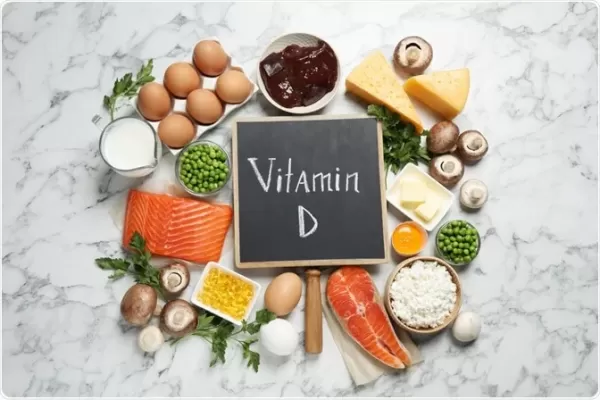Why Should Elders Consume more Vitamin D?


Vitamin D is required by all people, but adults over the age of 71 have the highest requirement, which is 20 mcg or 800 IU per day, according to the National Institutes of Health. One of the most important components of strong bones is calcium, which is absorbed more easily by vitamin D.
Vitamin D, along with calcium, helps prevent osteoporosis, a disease that makes bones thinner, weaker, and more likely to break. Vitamin D's beneficial effects are also required by the body for other functions. Nerves must transmit messages between the brain and the body for muscles to move. Vitamin D is essential for the immune system's defense against pathogens and viruses.
What a vitamin D deficiency could mean for senior health and the best ways to get more of it in your diet are discussed here, along with the 8 major benefits of vitamin D for seniors.
By facilitating the gut absorption of calcium, vitamin D contributes to bone mineralization and earns its reputation as a bone-building supplement. Calcium wouldn't be able to do its job without vitamin D, which is needed for bone growth and to prevent bones from becoming brittle.
Vitamin D can strengthen muscles in addition to its bone-building properties. A lack of vitamin D in the body can make it more likely that you will have weak muscles, have trouble keeping your balance, and fall more often.
Vitamin D helps the immune system fight off harmful bacteria and viruses and prevent infection. It also helps fight off viruses like the coronavirus and influenza.
Vitamin D plays a crucial role in lowering the risk of gum disease and tooth decay because it helps the body absorb calcium. The ability to act as an anti-inflammatory agent, stimulate the production of antimicrobial peptides, and influence bone metabolism may be the cause, according to the researchers.
Vitamin D may be useful in the prevention of both Type 1 and Type 2 diabetes, but further research is needed. The risk of developing type 2 diabetes may be significantly reduced by consuming more than 800 IU of vitamin D and more than 1,200 mg of calcium daily.
One of the indicators of cardiovascular disease, high blood pressure, may be treated with vitamin D, according to several studies. Even a short-term vitamin D deficiency may cause organ damage and directly raise blood pressure, according to researchers.
By promoting cellular differentiation, decreasing cancer cell growth, stimulating cell death, and reducing tumor blood vessel formation, vitamin D supplementation may improve outcomes in colorectal, breast, prostate, and pancreatic cancers.
According to studies, people who took vitamin D supplements for six months lost more weight and had smaller waistlines than those who didn't.
Problems caused by a lack of Vitamin D
Hypovitaminosis D, also known as vitamin D deficiency, affects people of all ages, but older people are more likely to suffer from it. Seniors rarely see the sun outside because they spend so much of their time indoors. Additionally, vitamin D synthesis becomes less effective as age-related skin thinning occurs. This issue is exacerbated by impaired nutrient absorption and reduced appetite.
It's important to be on the lookout for one or more of the subtle symptoms of low vitamin D in seniors, which can be mistaken for other health conditions.
How can I acquire more vitamin D?
Are you deficient in vitamin D? Consult your doctor to find out, and they will test your blood vitamin D level to see if it is sufficient. This will tell you if and how much of a supplement you need. But there are other ways to get more vitamin D into your body every day. One good place to start is getting at least 20 minutes of sunlight a few times a week. However, you will still need to protect your skin from UV rays by using sunscreen at all times.
In addition to the sun, certain foods like salmon, tuna, sardines, and mushrooms can provide additional vitamin D. If your doctor thinks you need it, you can take a vitamin D3 supplement. For the majority of adults, a daily dose of 1,000-2,000 IU of vitamin D3 is now considered safe by many doctors. Vitamin D is best taken with the largest meal of the day because it is fat-soluble.
Protect elderly loved ones from vitamin D Deficiency.
Vitamin D deficiency can lead to serious health issues because it is a very important nutrient that the body needs to function properly. Low vitamin D symptoms like fatigue, pain and depression are easy to misunderstand or dismiss as inevitable aging-related side effects. If you notice any of the aforementioned symptoms in your loved one, make sure to schedule an appointment with a doctor via Sarathi Healthcare. Seniors can quickly feel better with a straightforward blood test and recommendation for lifestyle changes or an over-the-counter vitamin D supplement. Get in touch with us at any time here.
Add a comment